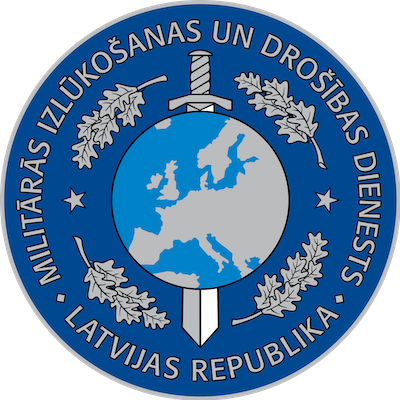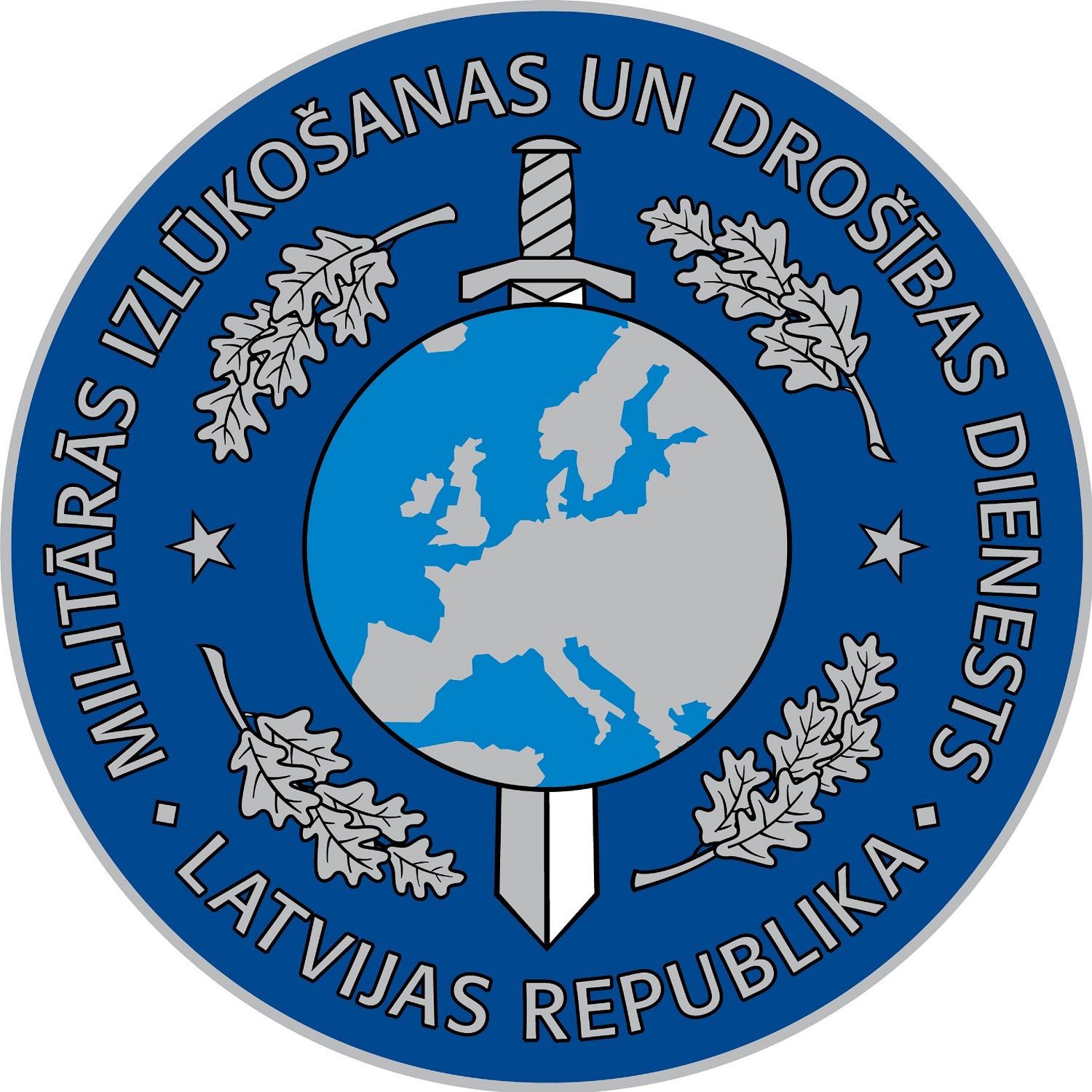
Militārās izlūkošanas un drošības dienests, saīsināti - MIDD, ir aizsardzības ministra pārraudzībā esoša valsts drošības iestāde, kas veic militāro pretizlūkošanu, izlūkošanu un citus Valsts drošības iestāžu likumā un citos normatīvajos aktos noteiktos uzdevumus. Kopš 2002. gada MIDD priekšnieks ir Indulis Krēķis.
Militārās izlūkošanas un drošības dienests:
- iegūst un nodrošina Aizsardzības ministriju, tās padotībā esošās iestādes, citas valsts varu un pārvaldi realizējošās institūcijas un to atbildīgās amatpersonas, kā arī Nacionālos bruņotos spēkus ar to darbībai nepieciešamo pretizlūkošanas un izlūkošanas informāciju;
- atklāj un sadarbībā ar citām valsts drošības iestādēm novērš ārvalstu speciālo dienestu, kā arī organizāciju vai atsevišķu personu graujošo darbību Aizsardzības ministrijā, tās padotībā esošajās iestādēs un Nacionālajos bruņotajos spēkos;
- veic pasākumus, lai aizsargātu valsts noslēpumu Aizsardzības ministrijā, tās padotībā esošajās iestādēs un Nacionālajos bruņotajos spēkos, un kontrolēto izpildi;
- pārbauda pretendentus, kas vēlas saņemt speciālas atļaujas (licences), kuras izsniedz Aizsardzības ministrija atsevišķu licencēšanai pakļautu komercdarbības veidu veikšanai, un sniedz atzinumu par speciālo atļauju (licenču) izsniegšanu;
- kā Latvijas Republikas nacionālā signālu izlūkošanas iestāde veic un kontrolē signālu izlūkošanu un nodrošina iegūtās informācijas aizsardzību;
- savas kompetences ietvaros ir operatīvās darbības subjekts;
- pilda citus normatīvajos aktos un starptautiskajos līgumos tam noteiktos uzdevumus, t.sk. nodrošina efektīvu informācijas apmaiņu ar NATO un Eiropas Savienības struktūrām un partnervalstīm.

The Defence Intelligence and Security Service, abbreviated as MIDD, is a state security institution under the subordination of the defence minister that carries out military counterintelligence, intelligence and other tasks as defined by the Law on State Security Institutions, as well as by other laws and regulations. As of 2002, the Director of the MIDD is Mr. Indulis Krēķis.
The MIDD is tasked to:
- Obtain and provide the Ministry of Defence, its subordinate institutions and other government bodies and their responsible officials, as well as the National Armed Forces with intelligence and counterintelligence information necessary for their operation.
- Detect and in cooperation with other state security institutions prevent subversive activities of foreign special services, organisations and individuals within the Ministry of Defence, its subordinate institutions, and the National Armed Forces.
- Take measures to protect official secrets within the Ministry of Defence, its subordinate institutions, and the National Armed Forces, as well as control the implementation of such measures.
- Vet the candidates willing to obtain special permits (licences) issued by the Ministry of Defence to carry out certain types of commercial activity that is subject to licencing and provide an opinion on the issuance of special permits (licences).
- As the national institution for signals intelligence, carry out and control signals intelligence and ensure the protection of the obtained information.
- Be the subject of investigatory operations within the scope of its competence.
- Fulfil other tasks as defined by laws and regulations and international agreements, including in ensuring effective information exchange with NATO and EU bodies and partner countries.
Normatīvie akti
Militārās izlūkošanas un drošības dienests darbojas saskaņā ar Satversmi, Nacionālās drošības likumu, Valsts drošības iestāžu likumu, likumu „Par valsts noslēpumu", Operatīvās darbības likumu, Ministru kabineta apstiprinātu Militārās izlūkošanas un drošības dienests darbojas saskaņā ar Satversmi, Nacionālās drošības likumu, Valsts drošības iestāžu likumu, likumu „Par valsts noslēpumu", Operatīvās darbības likumu, Ministru kabineta apstiprinātu MIDD nolikumu un citiem spēkā esošiem normatīvajiem aktiem.
Ar MIDD priekšnieka lēmumu ir nodibināts apbalvojums "Goda zīme", kura tehnisko un māksliniecisko aprakstu, kandidātu izvirzīšanas un izvērtēšanas kārtību, Goda zīmes piešķiršanas, nēsāšanas un atņemšanas nosacījumus, kā arī apbalvojumu apliecinoša dokumenta saturu un izskatu un apbalvojuma un tā miniatūrzīmes izgatavošanas nosacījumus nosaka MIDD priekšnieka parakstīts nolikums ar pielikumiem - 1. un 2. pielikums, 3. pielikums.
SAISTĪTIE DOKUMENTI
Laws and regulations
The MIDD operates in accordance with the Constitution, the National Security Law, the Law on State Security Institutions, the Law on Official Secret, the Operational Activities Law, the by-law on MIDD approved by the Cabinet of Ministers and other valid laws and regulations.
Pursuant to the MIDD director’s decision, the Award of the Director of the Defence Intelligence and Security Service “Medal of Honour” has been introduced. The award’s technical and design characteristics, the procedure for candidate nomination and evaluation, the regulations for conferring, wearing and withdrawal of the award, as well as the content and appearance of the award certificate and the production specifications of the medal and its miniature version are stipulated in MIDD director-approved regulations.
Eiropas Savienība
Kopējā drošības un aizsardzības politika (Common Defence and Security Policy) ir Eiropas Savienības kopējās ārējas un drošības politikas (Common Foreign and Security Policy) sastāvdaļa. Tā nodrošina ES ar rīcības spējām, izmantojot civilos un militāros krīzes vadības līdzekļus.
Kopējās drošības un aizsardzības politikas mērķi ir attīstīt ES institūciju un dalībvalstu rīcībā esošās krīzes vadības spējas un nodrošināt civilo un militāro spēju koordinētu izmantošanu krīzes situāciju pārvarēšanai. Šīs ES spējas ir ārkārtīgi nozīmīgas mūsdienu drošības problēmu risināšanā, jo ļauj pārvarēt krīzes situācijas, sākot ar to preventīvo novēršanu un beidzot ar pēckonflikta stabilizāciju un attīstības palīdzību.
The European Union
The Common Security and Defence Policy is an integral part of the EU’s Common Foreign and Security Policy. It enables the EU to employ civilian and military instruments of crisis management.
The objectives of the Common Security and Defence Policy include developing crisis management capabilities of EU institutions and member states and ensuring coordinated application of civilian and military capabilities for overcoming crisis situations. These capabilities of the EU are essential in tackling modern security challenges because they allow overcoming crisis situations starting from crisis prevention and ending with post-crisis stabilization and aid for development.
MIDD vēsture īsumā
1919.gada 26.martā Liepājā aizsardzības ministra uzdevumā tika izveidota Kontroles-informācijas nodaļa. Šis mirklis uzskatāms par dienesta dzimšanu. Dažas dienas vēlāk nodaļa uzsāka aktīvu darbību un informēja aizsardzības ministru par situāciju lielinieku frontē.
1919.gada jūnijā pēc Cēsu kaujām notika Latvijas bruņoto spēku apvienošana vienā armijā un kopīgas izlūkošanas nodaļas, kas pakļauta operatīvai daļai, izveide. Pēc Bermontiādes nodaļa tika sadalīta atsevišķās struktūrvienībās – ārējā izlūkošana, iekšējā izlūkošana un informācijas nodaļa.
Pēc Brīvības cīņu beigām tika reorganizēta Latvijas armija, t.sk. izlūkdienests. 1920.gadā Iekšējās izlūkošanas nodaļu likvidēja un tās funkcijas nodeva Politiskajai pārvaldei. Starpkaru periodā armijas izlūkdienests piedzīvoja vairākkārtējas pakļautības maiņas līdz 1934.gadā tika izveidota Armijas štāba Informācijas daļa.
Padomju represijas ļoti smagi skāra armijas izlūkdienestu – daudzi virsnieki, darbinieki un aģenti tika apcietināti, izsūtīti uz padomju soda nometnēm vai nošauti (1940.-1941.gadā represēja 217 personas). 1940.gadā izlūkdienesta vadītājs pulkvedis F.Celmiņš-Celms, lai nenodotu armijas izlūkošanas dienesta aģentus, iznīcināja dienesta arhīvu un pats 1940.gada 24.jūlijā izdarīja pašnāvību, nošaujoties, lai izvairītos no čekas aresta un paglābtu ģimeni.
Ar Aizsardzības ministrijas 1992.gada 12.jūnija pavēli Nr.108 „Par jaunas struktūrvienības un štatu ieviešanu” tika izveidota Aizsardzības ministrijas pakļautībā esoša izlūkošanas struktūrvienība – Aizsardzības ministrijas Ziņu dienests.
1994.gada 9.augustā Latvijas Republikas Ministru kabinets izdeva rīkojumu Nr.370-r „Par Aizsardzības ministrijas Militārās pretizlūkošanas dienesta izveidošanu”. Militārās pretizlūkošanas dienests (MPD) bija Aizsardzības ministrijas institūcija, kas veic pretizlūkošanas un izlūkošanas darbības militārajā jomā un ir pakļauta aizsardzības ministram. MPD pārņēma Ziņu dienesta tiesības un saistības.
1998.gadā, līdz ar grozījumiem Valsts drošības iestāžu likumā, MPD uz laiku kļuva par Nacionālo bruņoto spēku (NBS) sastāvdaļu un nonāca NBS komandiera pakļautībā. 2001.gada decembrī, veicot grozījumus Valsts drošības iestāžu likumā, MPD atgriezās Aizsardzības ministrijas pakļautībā.
2004.gada aprīlī Latvijas Republikas Saeima pieņēma jaunus grozījumus Valsts drošības iestāžu likumā, kas noteica, ka MPD turpmāk būs Militārās izlūkošanas un drošības dienests (MIDD). Tāpat tika noteikts, ka MIDD turpmāk tiks nodots Aizsardzības ministrijas pārraudzībā un veiks militāro pretizlūkošanu, izlūkošanu un citus šajā likumā noteiktos uzdevumus.
Brief history of the MIDD
On March 26, 1919, pursuant to the defence minster’s order, the Control-Information Department was established in Liepāja. This moment is considered the birth of the service. A few days later, the department commenced active operations and provided the defence minister with information on the situation on the Bolshevik front.
In June 1919, after the Cēsis Battles, Latvian armed forces were united into a single army and a joint intelligence department was established under the operations division. After the victory over the Bermontian army, the department was divided into separate structural units – external intelligence, internal intelligence, and information department.
After the end of the Latvian War of Independence, the Latvian army was reorganized, including the intelligence service. In 1920, the Internal Intelligence Department was abolished and its functions were taken over by the Political Directorate. During the inter-war period, the army intelligence service underwent several changes in subordination, until the Army Staff Information Division was established in 1934.
Soviet repressions hit the army intelligence service very hard – many officers, employees and assets were arrested, deported to Soviet punitive camps, or shot (in 1940-1941, 217 people suffered repressions). In 1940, in order to not surrender army intelligence assets, the intelligence service’s head Colonel F.Celmiņš-Celms destroyed the archive and shot himself on July 24, 1940, to avoid being arrested by the KGB and save his family.
Pursuant to the decree of the Ministry of Defence No.108 of June 12, 1992, “On the establishment of a new structural unit and staff”, a new intelligence body was established under the subordination of the Ministry of Defence – the Information Service of the Ministry of Defence.
On August 9, 1994, the Latvian Cabinet of Ministers issued a decree No.370-r “On the establishment of the Military Counterintelligence Service of the Ministry of Defence”. The Military Counterintelligence Service was an institution of the Ministry of Defence that carried out military counterintelligence and intelligence activities and was subordinated to the defence minister. The Military Counterintelligence Service took over the rights and obligations of the Information Service.
In 1998, following amendments to the Law on State Security Institutions, the Military Counterintelligence Service temporarily became a part of the National Armed Forces and was subordinated to the National Armed Forces’ commander. In December 2001, with the introduction of next amendments to the Law on State Security Institutions, the Military Counterintelligence Service returned under the subordination of the Ministry of Defence.
In April 2004, the Latvian parliament, Saeima, accepted new amendments to the Law on State Security Institutions stipulating that the Military Counterintelligence Service would become the Defence Intelligence and Security Service (MIDD). It was also established that the MIDD would be under the subordination of the Ministry of Defence and would carry out military counterintelligence, intelligence and other tasks as defined by the said law.